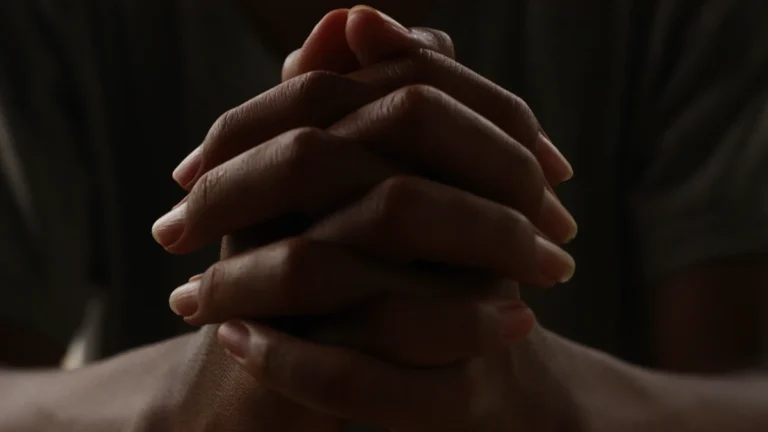A Field Guide to Institutional Self-Deception
About 180 years ago, Hans Christian Andersen wrote the last of his Fairy Tales Told for Children — The Emperor’s New Clothes.
There was no Facebook then. No Instagram influencers parading enlightenment in 4K. Yet somehow, Andersen still nailed the psychology of our times — the eternal art of pretending not to notice what’s right in front of our faces.
You know the story. Two swindlers promise an emperor the finest suit of clothes ever woven, so exquisite that only the wise and competent can see it. Those unfit for their office, those stupid or incompetent — well, they’d see nothing at all. Of course, there were no clothes. When the emperor strutted before his people, naked as a peeled shrimp, everyone played along. Compliments flowed. Dignitaries nodded gravely. No one dared to look stupid.
Until a child — uncredentialed, unpaid, and unafraid — cried out that the emperor was wearing nothing at all.
This post first appeared in 2019, back when I still entertained hope that rational arguments might sway public sentiment. I’ve since remastered it—sharpened the edges, clarified the threat, and realigned it with the Grimwright ethos: use what works, discard the rest, and always—always—question the narrative. The date remains unchanged as a historical marker. The content does not.
We laugh when we hear it in school. In Austria, where I grew up, teachers read it as a moral fable. The class would chuckle. Yet, outside that classroom, the same farce plays out every day on a planetary scale.
There are endless reasons why people swallow obvious nonsense. Status, for one. “Everyone believes it, and I don’t want to be the odd one out.” Fear is another — not fear of physical harm, though that too has its place, but the quieter terror of being the person everyone turns to stare at. Nobody wants to be the wounded thumb sticking out of the bandaged hand of conformity.
Then there’s social cost. It’s easy to pay in money, harder to pay in reputation. The price of pointing out the obvious is immediate, personal, and often humiliating. The price of silence is diffused, abstract, and usually postponed until the damage is irreparable. Humanity has always preferred deferred pain over immediate discomfort — and so the lie endures.
Still, we like to think we’re smarter than that. We wouldn’t be taken in by invisible fabric, would we? Surely we’d be the clever child, shouting truth through the parade.
Would we?
Let’s try a test.
What’s the first thing that comes to mind when you hear China?
Not the human rights record. Not the smog. Not even the geopolitical chessboard.
No — most likely it’s the miracle story. The Great Economic Ascent. The nation of rice farmers turned global powerhouse. The second-largest economy, challenging the United States for dominance.
It’s a compelling narrative — until you look too closely at the stitching. Because beneath the glossy numbers, the seams are fraying.
For years now, even insiders have whispered that China’s reported growth figures are pure theater. Almost no one believes them, but almost everyone pretends to. After all, who wants to be the one to say the emperor’s naked when the emperor controls your market access?
So we nod. We smile. We quote the official data, knowing full well it’s a fantasy. “Five thousand years of civilization,” we tell ourselves. “Surely they know something we don’t.”
Meanwhile, scholars like Michael Pettis at Peking University have been saying it plainly: China’s economy is shackled by debt and distortion. Academic studies from Hong Kong and Chicago have demonstrated that the official GDP numbers are works of creative fiction. Provincial party officials have been caught fabricating statistics — Liaoning being just the tip of a very large, very well-fed iceberg.
But the deceit isn’t driven by ideology alone. It’s something far more human: survival.
Picture a provincial governor staring at an impossible target decreed by Beijing. He knows the numbers are fantasy, but he also knows what happens to the man who reports failure. So he adjusts, massages, embellishes. His subordinates do the same. Nobody wants to expose anyone else’s lies, because those lies form the scaffolding of their own careers. The art isn’t in truth — it’s in hitting the target without attracting notice.
Meet the target, you survive. Exceed it too much, you invite suspicion. The entire bureaucratic organism learns to breathe in sync with the rhythm of deceit.
And so the fiction metastasizes. Fake numbers lead to fake demand, fake policy signals, fake investment. Entire cities rise out of nothing — ghost metropolises of concrete and dust, their brittle infrastructure nicknamed tofu dregs. Companies like Evergrande gorge on illusion until the illusion collapses.
But the lie doesn’t stay in China. It trickles outward, through supply chains, markets, and corporate forecasts. Western companies build their quarterly dreams on imaginary Chinese demand. And when the façade trembles, we find ourselves unable to produce even the simplest goods without Beijing’s permission.
Yet the original sin remains the same: some mid-level manager who didn’t dare to say “this is nonsense.”
Because the first one to speak is always the one left holding the bag.
Whistleblowers don’t fare well anywhere. In China, they might disappear. In the West, they simply stop getting invited to meetings. The mechanism is identical — only the consequences differ in degree, not in kind.
Studies suggest China’s real economy is far smaller than advertised. Growth, if not already reversed, is at least running out of fuel. The country caught Japan’s disease — stagnation — before its citizens caught Japan’s wealth.
But don’t get smug. This dynamic isn’t unique to Beijing’s mandarins. It’s universal. Given the chance, any system — corporate, political, even democratic — will protect its illusions to the bitter end.
The only difference is that open societies expose their lies faster. Failure here is less taboo, more quickly punished, less likely to snowball into catastrophe. Usually.
When things break in the West, they do so loudly. When they break in closed systems, they do so quietly — until they don’t. Then everything collapses at once.
The mechanism is ancient and predictable:
A system sets impossible goals.
Individuals pretend to meet them.
Everyone knows it’s fake, but no one moves first.
Eventually, reality barges in, uninvited, and wrecks the furniture.
China pays with wealth and livelihoods. The Soviet Union paid in bodies.
If you’ve seen HBO’s Chernobyl, you know what systemic lying looks like when it reaches critical mass. The horror wasn’t the explosion itself — it was the bureaucratic theater that followed.
Communism, in its supreme arrogance, could not admit fault. Mistakes were impossible by definition, so the only way to preserve perfection was through silence and death. Men were sent to certain radiation poisoning because acknowledging failure would mean questioning the system’s divinity. They walked into lethal zones clinging to the irrational belief that the machine of state could not possibly be wrong — that loyalty might somehow outweigh physics.
We tell ourselves such madness could never happen again. But it happens all the time, only subtler now — hidden under balance sheets, projections, and quarterly reports.
We still believe in our own little Chernobyls. Japanese nuclear reactors, long past expiry, still declared safe because “management says so.” Energy pipelines sold as eternal bargains — “Russian gas is the cheapest there is” — though anyone with a calculator knows that Siberian gas fields are logistical nightmares. We nod along, because the story is comfortable.
Even the Arctic LNG fantasy — icebreakers, subzero loading, re-export, all somehow cheaper than non-Arctic alternatives — we buy it wholesale, because it flatters our wishful thinking.
The executives I met who swore Russian gas would always be the better deal weren’t liars. They were believers. That’s worse.
Because belief is what sustains the illusion long after the evidence has turned to ash.
And so, back to Andersen’s fable. Who will be the child this time? Who dares to point at the emperor — the politician, the economist, the CEO — and say, “You’re naked”?
We have a thousand adults in the parade, nodding solemnly, complimenting the threads of fantasy. The few who dare to whisper truth are dismissed as cranks or cynics.
History, alas, is not kind to the true believers. It never punishes the liars first.
It saves its wrath for those who believed the lie the longest.




